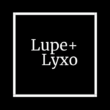However, very strenuous compliance requirements are placed on these buying and selling actions, which embrace internal controls and extensive documentation. In June 2020, the Federal Deposit Insurance Corp. (FDIC) voted to permit industrial banks to invest in venture capital funds. However, regulators did obtain their goals — commercial banks and proprietary trading went their separate methods as many of the industry’s most outstanding merchants left their banks to kind hedge funds. Dodd-Frank officially adjusted section 13 of the Bank Holding Company Act, which was then nicknamed the Volcker Rule after its preliminary proposer.
Spurred by the failure of almost 5,000 banks during the Great Depression, the Glass-Steagall Act was passed by the U.S. Sponsored by Sen. Carter Glass, a former Treasury secretary, and Rep. Henry Steagall, chair of the House Banking and Currency Committee, it prohibited commercial banks from taking part in the funding banking enterprise and vice versa. A bank may be excluded from the Volcker Rule if it does not have greater than $10 billion in whole consolidated assets and does not have complete buying and selling property and liabilities of 5% or more of total consolidated property. The rule units forth a variety of exceptions to these prohibitions, similar to overseas public funds, wholly owned subsidiaries and joint ventures. However, in 2020, a federal court struck down some of the proposed adjustments to the Volcker Rule, ruling that they went past the agencies’ authority and violated the intent of the Dodd-Frank Act. The Volcker Rule, and the whole Dodd-Frank Act, aren’t extensively popular within the monetary services world, and many traders also dislike provisions of the act that require larger investment margins and prohibit how buyers can commerce.
The rule is listed in Section 619 of the Dodd-Frank Act, and is a part of the larger financial reforms contained in that legislation. The last rule eliminates the requirement that a banking entity include in its mixture fund funding restrict and Tier 1 capital deduction the worth of any possession interests in a covered fund acquired or retained beneath the underwriting or market making-related activities exemptions, as lengthy as the banking entity does not organize or supply that lined fund. The businesses continue to assume about whether or not the strategy being adopted in the last rule may be extended to other issuers, corresponding to funds suggested by the banking entity, and intend to deal with and request extra comment on this concern in the future proposed rulemaking. In 2018, the Federal Reserve Board, the Office of the Comptroller of the Currency, the Federal Deposit Insurance Corporation, the Securities and Exchange Commission, and the Commodity Futures Trading Commission proposed changes to the rule that might loosen some of its restrictions on banks’ buying and selling actions. The changes included simplifying the compliance requirements for small banks, clarifying the forms of trades that are allowed beneath the rule, and eradicating sure restrictions on banks’ investments in hedge funds and personal equity funds.
- Furthermore, in October 2017, a Reuters report revealed that the European Union (EU) had scrapped a drafted law that many characterized as Europe’s answer to the Volcker Rule, citing no foreseeable agreement in sight.
- However, banks can not have interaction in these actions if doing so would create a fabric battle of curiosity, expose the institution to high-risk assets or buying and selling strategies, or generate instability inside both the bank or the overall U.S. financial system.
- Spurred by the failure of just about 5,000 banks during the Great Depression, the Glass-Steagall Act was passed by the us
- For instance, Trade The Pool’s Funded Trader Program provides paper capital to potential merchants for a small upfront payment and then offers instruments, training and evaluation to maximise profit potential.
- In the United States, Deloitte refers to a number of of the US member companies of DTTL, their related entities that function utilizing the “Deloitte” name within the United States and their respective affiliates.
For example, in a agency commitment underwriting or a conventional Rule 144A transaction, securities sellers acquire newly issued securities from the issuer for the purpose of promptly reselling them to their customers. Under the Volcker Rule, buying securities as principal for the purpose of immediate resale can be deemed proprietary trading and would be prohibited except the transactions come inside the scope of the SOTUS Exemption or the exemption for underwriting actions. The Vickers Report from the Independent Commission on Banking (ICB) known as for “ringfencing” of domestic retail depository establishments from world wholesale/investment banking operations. The ringfenced establishments would have separate boards of directors from the father or mother company and capital of as much as 20 %.
Rentd: The Center Of The Volcker Rule
In other words, the rule goals to discourage banks from taking too much risk by barring them from utilizing their own funds to make these varieties of investments to extend profits. The Volcker Rule depends on the premise that these speculative buying and selling activities don’t profit banks’ clients. However, inter-dealer trading with banking entities of all sizes could be permitted to the extent such trading is undertaken to support the broker-dealer’s market making actions. The limits used to satisfy the presumption of compliance under the ultimate rule shall be topic to supervisory evaluate and oversight by the applicable company on an ongoing foundation. Moreover, the final rule supplies that the presumption of compliance could additionally be rebutted by the applicable company if such company determines, considering the liquidity, maturity, and depth of the market for the related types of monetary devices and based mostly on all relevant facts and circumstances, that a buying and selling desk is engaging in activity that is not designed to not exceed RENTD.

The rule prevents banks from utilizing their very own accounts to interact in proprietary buying and selling of short-term securities, derivatives, futures, and choices. Large banks that engaged in proprietary trading accrued huge losses, which compelled the federal government to intervene by bailing them out using taxpayer funds. The banks argued that many of their positions have been in illiquid investments on which they would have to take vital losses to exit.
Volcker Rule
The 2013 Rule accommodates numerous exclusions and exemptions from the scope of prohibited proprietary buying and selling. The rules have been developed by 5 federal financial regulatory agencies, together with the Federal Reserve Board, the Commodity Futures Trading Commission, the Federal Deposit Insurance Corporation, the Office of the Comptroller of the Currency, and the Securities and Exchange Commission. Affiliates within a financial institution holding structure ought to be permitted to spend money on personal fairness funds, as lengthy as the affiliate doesn’t have access to either the depository institution’s insured deposits or capital.
The Agencies believe that this method (limit primarily based presumption of compliance) would enable for a clearer utility of those exemptions, and would supply companies with extra flexibility and certainty in conducting market making-related actions. Commercial banks are allowed to supply varied services similar to hedging, market making, underwriting, and insurance coverage services, as well as acting as brokers, brokers, or custodians. However, the banks are only allowed to supply the companies to their purchasers and not interact within the actions instantly.
The Volcker proposal aimed toward separating the commercial banking and investment banking divisions of banks. The proposal was endorsed by President Barack Obama, and it was included in the 2010 Congress proposal that recommended an overhaul of the financial industry. FBOs and their offshore broker-dealers ought to be in a position to continue to behave as underwriters for the worldwide tranche of global offerings in reliance upon the SOTUS Exemption.
In the ultimate rule, nevertheless, the businesses determined to undertake only these lined fund-related provisions for which particular rule textual content was proposed (and, in every case, considerably as proposed). The businesses famous that they continue to assume about other elements of the coated fund provisions and intend to issue a separate proposed rulemaking that particularly addresses these areas. CFA Institute supports the final goal of the Volcker Rule — to stop financial establishments from benefiting from government-insured deposits and the capital of depository banking establishments to have interaction in proprietary buying and selling or investing in hedge funds and private fairness funds. Named after former Federal Reserve Chairman Paul Volcker, the Volcker Rule disallows short-term proprietary buying and selling of securities, derivatives, commodity futures and options on these instruments for banks’ own accounts beneath the premise that these activities don’t benefit banks’ prospects. In different words, banks cannot use their very own funds to make these type of investments to increase their earnings. In addition to the proprietary trading flowcharts, Davis Polk flowcharts analyzing the Volcker Rule’s prohibition on banking entities sponsoring or acquiring possession interests in hedge funds and personal fairness funds will be obtainable at volckerrule.com.
Coated Fund Activities And Investments
The implications of this restriction must be thought-about in mild of the practices developed by FBOs and their U.S. broker-dealer associates beneath SEC Rule 15a-6. That rule was adopted in 1989 in giant part to facilitate entry by U.S. institutional buyers to overseas securities. Under Rule 15a-6, foreign broker-dealers and banks acting in a principal or company capacity might solicit transactions with U.S. institutional investors, offered that such transactions are effected via a U.S. registered broker-dealer. Many FBOs have established U.S. registered broker-dealers that, amongst other issues, facilitate buying and selling between the FBO and its offshore broker-dealers on the one hand and U.S. institutional buyers however.
The reporting obligation commences on June 30, 2014 for FBOs with a minimum of $50 billion in U.S. trading assets or liabilities; on April 30, 2016 for FBOs with no less than $25 billion in U.S. buying and selling property and liabilities; and on December 31, 2016 for FBOs with no much less than $10 billion in U.S. trading property and liabilities. FBO-affiliated broker- sellers that have interaction in proprietary buying and selling might need to establish inner reporting protocols to ensure that any required info is made available on a well timed foundation to their affiliated FBO. The Volcker Rule additionally bars banks, or insured depository establishments, from acquiring or retaining ownership pursuits in hedge funds or personal equity funds, topic to certain exemptions.
The last rule modifies the proposal to specify that the companies will take into account the liquidity, maturity, and depth of the market for the related types of financial devices when determining whether or not to rebut the presumption of compliance. The last rule adds an exclusion to the 2013 Rule’s definition of proprietary trading for transactions by which a banking entity erroneously executes a purchase order or sale of a monetary instrument in the midst of conducting a permitted or excluded activity. Contrary to the proposal, nevertheless, a banking entity wouldn’t be required under the ultimate rule to switch financial instruments purchased in error into a separately-managed commerce error account for disposition. The ultimate rule’s modifications relate primarily to the Volcker Rule’s proprietary trading and compliance program requirements. While the businesses adopted sure restricted adjustments to the Volcker Rule’s lined fund-related provisions, the companies noted that they continue to contemplate different features of the lined fund provisions on which they sought comment in the 2018 proposal, and intend to problem a separate proposed rulemaking that specifically addresses these areas.

In addition, compensation for persons engaged within the underwriting have to be designed to not incentivize prohibited proprietary buying and selling. Moreover, the banking entity should implement and maintain additional inner compliance standards detailed in Subpart D of the Volcker Rule (“Subpart D Compliance Program”) and is subject to varied https://www.xcritical.in/ further reporting obligations. The 2013 Rule excludes from the definition of proprietary buying and selling the acquisition or sale of securities for the purpose of liquidity management in accordance with a documented liquidity management plan that meets sure necessities set forth within the rule.
Covered Fund Provisions Presumably Subject To Future Proposals
Office of the Comptroller of the Currency (OCC) voted to amend the Volcker Rule in an try and clarify what securities buying and selling was and was not allowed by banks. On June 25, 2020, Federal Deposit Insurance Corp. (FDIC) officers said the agency will loosen the restrictions of the Volcker Rule, permitting banks to more simply make giant investments into venture capital and comparable funds. Considerable uncertainty stays regarding how regulators will finally interpret the RENTD requirement and what practices will be deemed acceptable from a compliance perspective. Despite the uncertainty, the RENTD requirement is current in the authentic statutory language and it plays a central function in attaining the broad regulatory goal of eliminating impermissible proprietary buying and selling within financial establishments covered by the Volcker Rule.
In response to robust trade opposition, however, the businesses dropped the proposed accounting prong from within the last rule and decided to not undertake the quantitative threshold-based presumption of compliance. The 2013 Rule exempts certain underwriting and market-making transactions from the prohibition on proprietary trading which might be designed not to exceed fairly expected near-term demand (“RENTD”) of shoppers, prospects or counterparties. The ultimate rule establishes a rebuttable presumption that a banking entity’s trading activity does not exceed RENTD (both with respect to the underwriting exemption and the market-making exemption) if the trading exercise is carried out in accordance with underwriting or market-making internal risk what is prop trading limits (as applicable) for each buying and selling desk which might be set in accordance with the final rule. The ultimate rule also amends the 2013 Rule in order that only a banking entity with $10 billion or more of consolidated gross trading property and liabilities can be required to have a complete internal compliance program to depend on the underwriting and market-making exemptions. In addition, banking entities which would possibly be topic to the market danger capital prong won’t be topic to the short-term intent prong (although such banking entities may elect to use the market danger capital rule prong as an different to the short-term intent prong under certain conditions).
Matched Derivative Transactions
But Volcker’s tenure on the Fed isn’t why prop merchants should know his name — it’s the banking rule that bears his moniker. Start with a free account to explore 20+ always-free courses and tons of of finance templates and cheat sheets. Annette Nazareth is a associate within the Financial Institutions Group at Davis Polk & Wardwell LLP, and a former commissioner at the united states
The objective of the compliance program and, specifically, the required limits, is to determine buying and selling activity that may represent impermissible proprietary trading and supply proof that subsequent escalation, investigation, and determination have occurred on a timely foundation. Instances of impermissible proprietary trading have to be reported to senior administration and the appropriate regulatory agency or companies. While the requirement appears clearly said, establishing a compliance program that can differentiate between acceptable market-making activities and impermissible proprietary trading can be difficult. A key to reaching the required degree of buying and selling activity differentiation rests with a banking entity’s RENTD methodology and implementation of the associated limits. The ultimate rule excludes from the buying and selling account any buy or sale of a financial instrument that does not meet the definition of “trading asset” or “trading liability” underneath the banking entity’s applicable reporting type. The last rule also excludes from the definition of proprietary trading any purchase or sale of financial devices that the banking entity uses to hedge mortgage servicing rights or mortgage servicing property in accordance with a documented hedging technique.
Understanding The Potential Implications Of Rentd
Notably, the ultimate rule completely eliminates the “enhanced” compliance program requirements, that are at present applicable to banking entities with over $50 billion in total consolidated property or significant buying and selling assets and liabilities. In addition, the final rule amends the 2013 Rule’s requirements for banking entities to report sure quantitative metrics related to asset lessons, markets and trading activities (applicable solely to banking entities with vital trading assets and liabilities under the Proposed Rule) to streamline such reporting requirements and cut back compliance-related inefficiencies. The so-called Volcker Rule is a federal regulation that prohibits banks from conducting certain investment activities with their own accounts, and limits their possession of and relationship with hedge funds and private fairness funds. The Volcker Rule’s purpose is to stop banks from making sure types of speculative investments that contributed to the 2008 monetary disaster. These Davis Polk flowcharts are designed to help banking entities in identifying permissible and impermissible proprietary trading activities under the final rules implementing the Volcker Rule, issued by the Federal Reserve, FDIC, OCC, SEC and CFTC on December 10, 2013.
The final rule expands the scope of risk-mitigating hedging actions involving possession interests in coated funds permitted for banking entities. Contrary to the proposal, the final rule does not require that a banking entity promptly report to the appropriate agency when a buying and selling desk exceeds or will increase its internal limits to avail itself of the RENTD presumption for the underwriting and market-making exemptions. Instead, the final rule requires banking entities to take care of and make obtainable to the relevant company, upon request, records concerning (1) any restrict that’s exceeded and (2) any momentary or permanent increase to any restrict, in each case within the kind and method as directed by the company. The Volcker Rule is a federal regulation that typically prohibits banks from conducting sure investment activities with their very own accounts and limits their dealings with hedge funds and personal equity funds, additionally referred to as coated funds. A covered fund is exempt from the definition of an investment company as outlined by the Investment Company Act of 1940, commodity swimming pools with characteristics just like hedge funds or personal equity funds and international coated funds.
